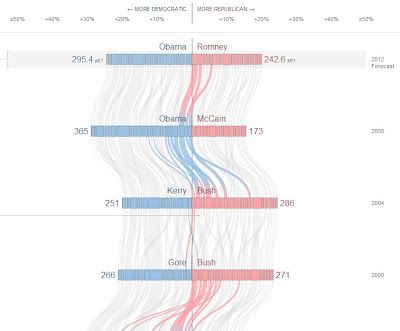Similar to everyone else's opinion, I also believe American political culture is conflictual. Our society wholly consists of the citizens that compose the different political groups arguing on whose ignorant, one-sided perception of issues is right. Whether one is a democrat or a republican, apparently, signifies much more than if you voted for Gore or Bush, but represents one's lifestyle, according to ideologies such as the latte libel. This states that liberals can be identified by what they drink and eat, emphasizing their arrogance and un-American qualities. Political beliefs are derived from where one lives, and this has split the nation into two. The clear separation has become "more than just mere voting blocks; they (are) complete sociological profiles, two different Americas at loggerheads with each other" (Frank 14). Red America and blue America have stereotypical, overgeneralized beliefs of the other that they cling to and refuse to believe otherwise. Liberals, particularly democrats, have become the center of degrading polls and discussions, claiming they are not real Americans. If the United States is truly the land of the free where all men are created equal, one's political preferences should not make them less or more American. This opinion that republicans are authentic Americans, who have built this nation and love God rather than themselves, also means that any naturalized citizens aren't Americans. My family is from Afghanistan, and we are all liberals, and from these articles, I have concluded that Frank and Brooks are telling us we are not true Americans, because we support democratic stances. All conservatives are depicted as great and humble hard workers, who value family, God and community. One can only be so humble when all they talk about is how humble they are. Christianity means a lot to red Americans, but Islam has no significance to them and most likely, conveys a reaction of disgust and the belief that all Muslims are terrorists is very popular. It is very clear that I'm a democrat by my perception of republicans, and my opinion is a result of my ethnicity and where I grew up. Both red Americans and blue Americans are ignorant, just on different ends of the spectrum. Our views of one another are similar to how enemies portray each other. The nation is actually "two nations of different faiths. One is observant, tradition-minded, moralistic. The other is unobservant, liberation-minded, relativistic" (Brooks). Due to this part in the country, the government is in a state where no progress is made and this will not change. The only way in which our political culture could be seen as consensual is that we are not currently fighting one another in a civil war.
















